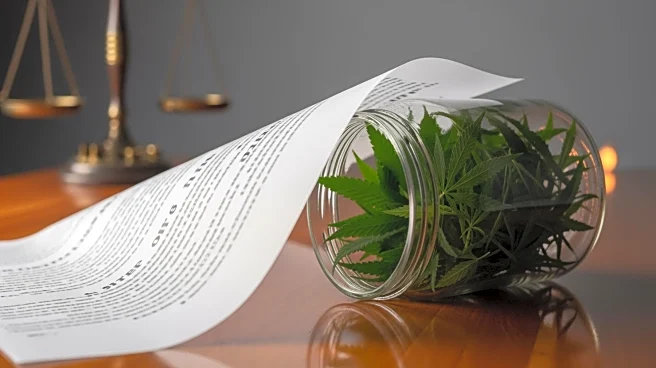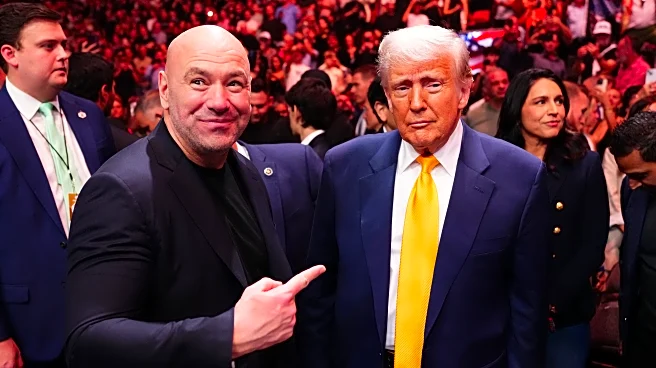What's Happening?
The recent government funding bill signed by President Trump includes provisions that will significantly impact the hemp industry. The legislation restricts hemp products to 0.4 milligrams of THC per container, effectively banning over 95% of hemp extract
products, including non-intoxicating CBD products. This move is expected to push the market for these products underground, creating a black market. The U.S. Hemp Roundtable warns that the ban threatens over 300,000 jobs and a $28.4 billion industry. The impetus for the ban stems from concerns about synthetic cannabinoid consumables, including poorly labeled products from China, which may not adhere to U.S. pesticide standards.
Why It's Important?
The legislation poses a significant threat to the hemp industry, which has been a growing sector in the U.S. economy. The ban could lead to job losses and economic downturns for businesses involved in hemp production and sales. Industry experts fear that the restrictions will drive consumers to seek these products on the black market, potentially increasing illegal activity and unregulated sales. The decision reflects broader concerns about the safety and regulation of hemp-derived products, highlighting the need for a balanced approach to cannabis policy.
What's Next?
The hemp industry has a year to work with Congress to find a solution that allows the market to continue while eliminating unethical actors. Industry advocates are optimistic about developing sensible federal policies for hemp and cannabis. The new provisions outline a one-year period for companies to adapt to the new regulations. If successful, this could lead to a more regulated and safer market for hemp-derived products. However, failure to establish these rules could result in the industry's decline, increasing pressure on stakeholders to act swiftly.
Beyond the Headlines
The ban on hemp-derived THC products could have cultural implications, as it represents a shift away from the recent trend of cannabis legalization. The decision may influence public perception of hemp and cannabis products, potentially affecting future legislative efforts. Additionally, the move could impact international trade, as U.S. standards for hemp products may differ from those in other countries. The industry's response to the ban will be crucial in shaping the future of hemp and cannabis regulation in the U.S.
















